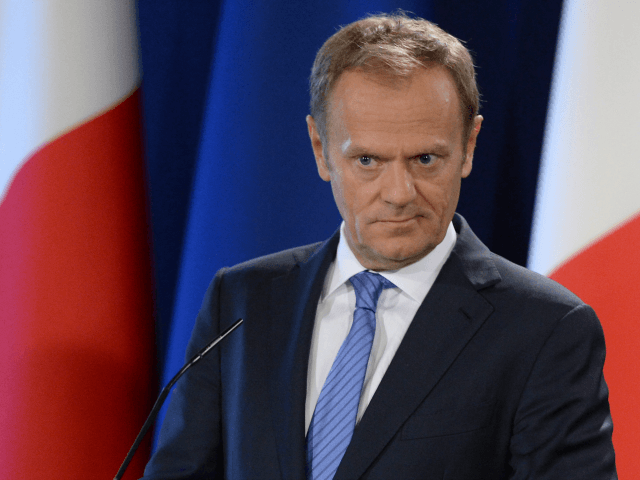Britain will be able to start trade talks with the European Union in October but only if it has overcome two obstacles set by Brussels.
Prime Minister Theresa May will have to make “sufficient progress” on the future status of EU nationals living in Britain, and on the amount of money the country will pay upon “divorce”, European Council President Donald Tusk said.
However, the definition of “sufficient progress” is not clear, and will depend on a consensus among the 27 remaining EU members.
Mr Tusk dismissed calls by Britain for parallel talks on the Brexit process and a post-Brexit trade deal, saying: “Once and only once we have achieved sufficient progress on the withdrawal can we discuss the framework for our future relationship. Starting parallel talks on all issues at the same time, as suggested by some in the UK, will not happen.
“The EU at 27 decides if sufficient progress has been achieved, probably in the autumn. At least I hope so.”
The Times reports the European Council President also said he would visit Theresa May later this month before meeting leaders of the remaining EU nations – the so-called EU-27 – on 29 April to set out their terms.
Mr Tusk said he wants a “level playing field” after Britain leaves the EU, suggesting he may want to limit British plans to cut tax and bureaucracy.
“We must ensure a level playing field in terms of competition and state aid and must encompass safeguards against unfair competitive advantages through, inter alia, fiscal, social and environmental dumping,” he said.
There are increasing signs leaders across Europe are worried Britain could steal trade from the bloc by introducing a much more competitive tax system after it is no longer subject to EU rules.
German Deputy Economy Minister Matthias Machnig told Bloomberg a trade agreement between the UK and EU would only be possible if the UK promised not to cut tax and regulation too much.
“We don’t want to erect barriers to trade, but we need fair dealings. We can only conclude a fair-trade agreement with advantages for both sides if there are reasonable framework conditions in the areas of tax, regulation and the like,” he said.

COMMENTS
Please let us know if you're having issues with commenting.